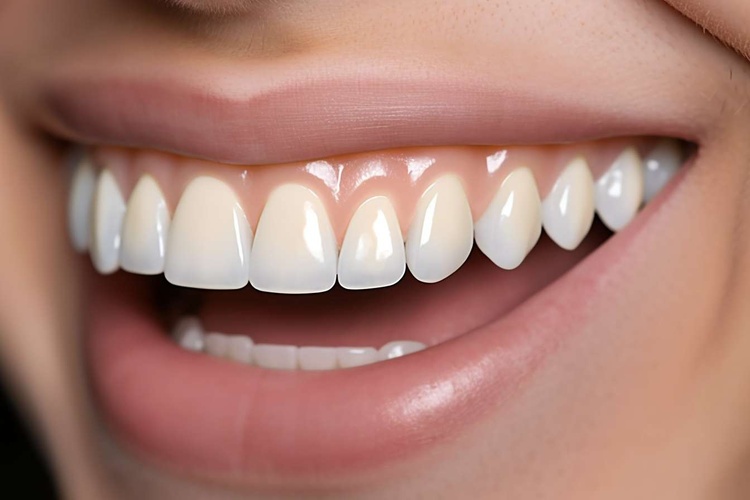How to Get Rid of Bad Breath Right Now
Bad breath can be embarrassing and affect your confidence in social situations. While many people reach for quick fixes like mints or mouthwash, these temporary solutions often mask the problem rather than addressing its root causes. Understanding what's really causing your bad breath is the first step toward effective, lasting freshness.

Bad breath, medically known as halitosis, affects millions of people worldwide and can significantly impact social interactions and self-confidence. Though many people immediately turn to oral hygiene products for a quick fix, the truth is that persistent bad breath often stems from deeper issues within the body. This article explores comprehensive approaches to eliminate bad breath immediately and prevent it from returning by addressing its underlying causes.
Bad Breath Starts in Your Gut — Fix it From Within
Many people are surprised to learn that bad breath frequently originates not in the mouth but in the digestive system. Your gut health directly influences your breath odor through several mechanisms. When your digestive system struggles to break down certain foods properly, it can produce sulfur compounds that eventually make their way to your breath. Additionally, conditions like acid reflux can cause stomach contents to travel back up the esophagus, bringing unpleasant odors with them.
To address gut-related bad breath, consider incorporating probiotics into your diet through yogurt, kefir, or supplements. These beneficial bacteria help restore balance to your digestive system. Drinking plenty of water throughout the day aids digestion and helps flush toxins that could contribute to bad breath. Fiber-rich foods like fruits, vegetables, and whole grains can also improve gut transit time and reduce the likelihood of odor-causing compounds building up in your system.
Stomach Issues, Poor Hygiene, Dry Mouth — We Target Them All
Bad breath can have multiple contributing factors that require different approaches. Stomach issues like gastroesophageal reflux disease (GERD) allow stomach acids to reach your mouth, creating a sour odor. If you suspect this might be your issue, try eating smaller meals, avoiding trigger foods like spicy or acidic items, and not lying down immediately after eating.
Poor oral hygiene is another common culprit. Food particles trapped between teeth provide fuel for bacteria that produce volatile sulfur compounds. Implementing a thorough oral care routine is essential: brush twice daily, floss at least once, and don’t forget to clean your tongue where bacteria often accumulate. A tongue scraper can be particularly effective for removing the bacterial coating that forms on the tongue’s surface.
Dry mouth (xerostomia) creates an environment where odor-causing bacteria thrive. Stay hydrated, limit alcohol and caffeine consumption, and consider using alcohol-free mouthwash specifically designed for dry mouth. If medications are causing your dry mouth, consult with your healthcare provider about possible alternatives.
Natural Remedies + Science = Real Freshness
Combining traditional natural remedies with scientific understanding offers powerful solutions for bad breath. Antimicrobial herbs and foods can help fight the bacteria responsible for oral odors. Chewing fresh parsley, mint leaves, or cloves can provide immediate freshness while also offering antibacterial benefits. Green tea contains polyphenols that suppress the growth of bacteria and temporarily reduce sulfur compounds.
Oil pulling, an ancient Ayurvedic practice involving swishing oil (typically coconut or sesame) in your mouth for 15-20 minutes, has gained scientific support for reducing bad breath. The oil traps bacteria and toxins, which are then expelled when you spit it out. For a science-backed approach, look for oral care products containing zinc compounds, which neutralize sulfur gases, or chlorine dioxide, which directly attacks the volatile sulfur compounds responsible for bad odor.
Mouthwash Isn’t Enough. You Need a Full Reset
While mouthwash provides a quick burst of freshness, its effects are typically short-lived and may actually worsen the problem over time. Many commercial mouthwashes contain alcohol, which dries out the mouth and creates an environment where odor-causing bacteria can flourish. Additionally, antiseptic mouthwashes kill both harmful and beneficial bacteria, potentially disrupting the natural balance of your oral microbiome.
Instead of relying solely on mouthwash, consider a comprehensive approach to reset your oral health. Start with professional dental cleaning to remove hardened plaque (tartar) that harbors bacteria. Address any dental issues like cavities or gum disease that could be contributing to bad breath. Review your diet and reduce consumption of foods known to cause bad breath, such as garlic, onions, and certain spices. These compounds enter your bloodstream during digestion and are eventually released through your lungs when you breathe.
Clinically-Backed Formulas for Lasting Confidence
Science has made significant strides in developing effective solutions for persistent bad breath. Modern oral care products often contain a combination of ingredients specifically targeted at the biological causes of halitosis. Look for products containing chlorine dioxide, which neutralizes volatile sulfur compounds rather than masking them. Zinc compounds have been clinically shown to bind to sulfur, preventing the formation of odorous gases.
Oxygen-releasing compounds can help create an environment hostile to the anaerobic bacteria responsible for producing sulfur gases. Products containing sodium bicarbonate (baking soda) help neutralize acidic conditions where odor-causing bacteria thrive. For best results, choose products that address multiple aspects of bad breath rather than focusing on just one mechanism.
This article is for informational purposes only and should not be considered medical advice. Please consult a qualified healthcare professional for personalized guidance and treatment.
By implementing these comprehensive strategies that address both the symptoms and underlying causes of bad breath, you can achieve lasting freshness and renewed confidence in social situations. Remember that persistent bad breath despite proper oral hygiene could indicate an underlying health condition, so consult with a healthcare professional if your symptoms don’t improve with these approaches.




